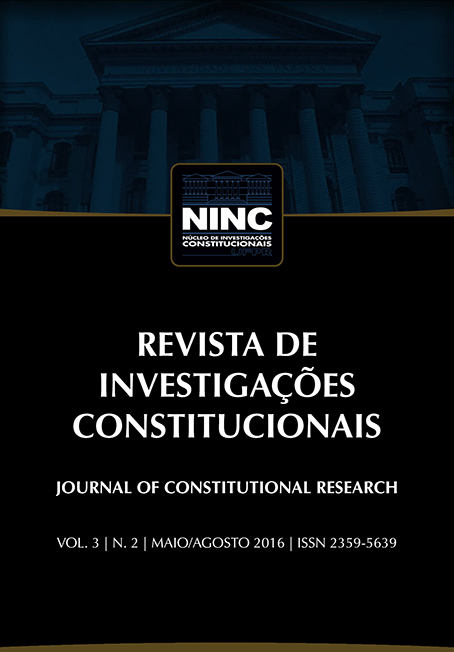Réflexions sur l’état d’urgence
DOI:
https://doi.org/10.5380/rinc.v3i2.46476Keywords:
état d’urgence, régime d’exception, securité, liberté, France.Abstract
La réaction du législateur et des juges français face aux évènements tragiques de janvier (attentat de Charlie Hebdo) et novembre (attentat du Bataclan) survenus à Paris en 2015, l’indignation, l’émotion et l’inquiétude de l’opinion publique appelaient une réponse rapide et appropriée. Elle prit la forme de la remise en vigueur du régime dit de « l’état d’urgence », né en 1955 et dont on renforçait les contraintes. Cette réaction énergique mise au service de la sécurité reçut l’adhésion quasi unanime de l’opinion publique et de l’ensemble des courants politiques. Mais la mise en œuvre des nouvelles mesures ne manqua pas de susciter la réaction de certains intellectuels, philosophes et juristes qui firent valoir les risques d’atteinte aux libertés traditionnelles. On ne s’attachera pas à la dimension politique de la controverse mais on cherchera à montrer combien cette crise a été le révélateur de débats et conflits juridiques, portant notamment sur la qualification de la police exercée, le choix de la juridiction compétente, l’adaptation et la proportionnalité des mesures, questions toujours en débat.
Downloads
Published
How to Cite
Issue
Section
License
Authors who publish in this Journal agree to the following terms:
- Authors retain copyright and grant the Journal of Constitutional Research the right of first publication with the article simultaneously licensed under the Creative Commons - Attribution 4.0 International which allows sharing the work with recognition of the authors and its initial publication in this Journal.
- Authors are able to take on additional contracts separately, for non-exclusive distribution of the version of the paper published in this Journal (eg.: publishing in institutional repository or as a book), with a recognition of its initial publication in this Journal.
- Authors are allowed and encouraged to publish their work online (eg.: in institutional repositories or on their personal website) at any point before or during the submission process, as it can lead to productive exchanges, as well as increase the impact and the citation of the published work (see the Effect of Open Access).
























